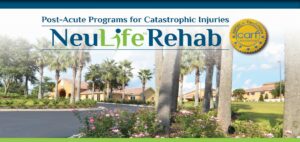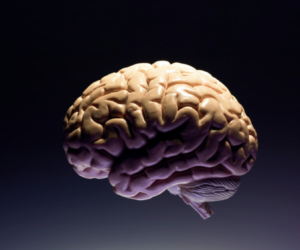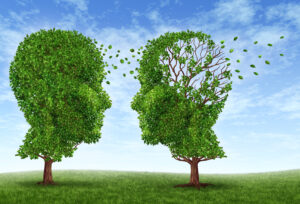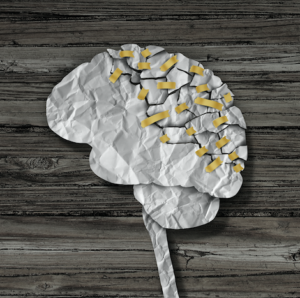
Would you like an impactful and life changing career?
Join us for a Job Fair October 15, 2019
NeuLife Rehab
Hope Center Building
2725 Robie Avenue, Mount Dora, FL 32757
9:00 a.m. – 4:00 p.m.
We are hiring LPN’s and CNA’s
Please visit our website: www.neuliferehab.com
Many of us are so overwhelmed by the process of TBI diagnosis, treatment, and traumatic brain injury rehab, that we don’t even think to ask the important questions or understand everything that the doctor says. A good physician will explain the tests, the diagnosis and the necessary rehabilitation in layman’s terms, but some won’t, or maybe the stress of the visit will make you forget as soon as you leave the office.
In Part 1 of this Guide, we’ve explained some of these terms, especially the ones concerning functions and skills. Today, in Part 2, we’ll explain more terms, concerning some of the symptoms of TBI.
Failure to recognize familiar objects although the sensory mechanism is intact. May occur for any sensory modality.
Lack of oxygen to the brain.
The inability to produce voluntary speech due to a deficit in motor (muscle) programming caused by brain damage.
Loss of the capability to perform learned determined movements, regardless of having the will to perform the movements.
A problem of muscle coordination not due to apraxia, weakness, stiffness, spasticity or sensory loss. Triggered by lesion of the cerebellum, or basal ganglia. It can affect a person’s ability to walk, talk, eat and to execute other self-care tasks.

A state in which a patient is bewildered, perplexed, or incapable to self-orient.
Incapability to control impulsive behavior and emotions.
A problem in forming words, or articulating them because of the weakness of muscles used in speaking. Speech is characterized by slurred, imprecise enunciation. Tongue movements are usually labored and the rate of speaking may be very slow. Voice
quality may be irregular, frequently disproportionately nasal; volume may be low; drooling may transpire. Dysarthria may go together with aphasia, or occur on its own.
Difficulty in swallowing. It also comprises a struggle to move material from the mouth to the stomach. This definition also includes difficulty in positioning food in the mouth.
A state of tiredness; the loss of strength or stamina.
Group of symptoms after a concussion that may consist of memory changes, mood swings, poor concentration, headaches, faintness, depression, and nervousness.
Partial loss of function all four extremities of the body.
Loss of function of any injured or diseased cervical spinal cord section, influencing all four body extremities.
Uncontrolled discharge of nerve cells which may spread to other adjacent cells or all over the brain. It typically lasts only a few minutes. It may be accompanied by loss of consciousness, loss of bowel and bladder control and tremors. May also cause hostility, and other behavioral deviations.
Involuntary increase in muscle tone that occurs following injury to the brain or spinal cord, causing muscles to resist being moved.
Condition in which the person doesn’t speak, follow commands, or give any response that is psychologically meaningful.
Stay tuned for the third part of this TBI glossary guide.
NeuLife Rehabilitation is one of the best TBI rehab centers with specialized catastrophic rehabilitation programs for a wide range of catastrophic injuries.
Our programs for traumatic brain injury rehabilitation are customized to meet the individual needs of each patient, and care plans are structured to promote the highest level of functional independence and successful community reintegration. Through the skills and experience of our highly trained team of clinical experts, we are able to treat a wide range of diagnoses and injuries at our brain injury rehab facility.
If you have any more questions concerning neuro rehab, brain injury rehab, or any other issue regarding traumatic brain injury rehabilitation, call us to make an appointment today. You can also schedule a tour to visit our best brain injury facility.
Sources:
https://www.headinjury.com/tbiglossary.htm

The material contained on this site is for informational purposes only and DOES NOT CONSTITUTE THE PROVIDING OF MEDICAL ADVICE, and is not intended to be a substitute for independent professional medical judgment, advice, diagnosis, or treatment. Always seek the advice of your physician or other qualified healthcare providers with any questions or concerns you may have regarding your health.
Many of us are so overwhelmed by the process of Traumatic Brain Injury (TBI) diagnosis, treatment, and traumatic brain injury rehabilitation, that we don’t even think to ask the important questions, or understand everything that the doctor says. A good physician will explain the tests, the diagnosis and the necessary rehabilitation in layman’s terms, but some don’t.
Here are some terms you might find useful when talking to healthcare staff about traumatic brain injury.
The conscious process of knowing, or being aware of thoughts, or perceptions, including understanding and reasoning.
Involving higher mental functioning - learning, memory, imagination, comprehension, decision making. Also, the means by which an individual becomes aware of people, objects, and situations in the environment and their subjective, symbolic meaning.
The capacities necessary to formulate, plan and carry out tasks effectively. These functions are essential for independent, creative and socially constructive behavior. These are controlled by the frontal lobe.
Neuropsychological Functions:
Brain functions relating to behavior based on the results of standardized tests, history, present circumstances, attitudes and the expectations of the patient as well as the patient’s behavior during the examination.
The ability to make sense of what one sees, hears, feels, tastes, or smells. Perceptual
losses are often very subtle and the patient and/or family are unaware of them.
Ability to bring the cognitive process to figure out how to do a task.
The normal range of movement of any body joint. Range of motion also refers to exercises designed to maintain this range and prevent contractures.
The ability to think logically.
Response to a physical danger, or severe stress characterized by a state of apathy, lethargy, depression, and retreat into oneself.
Being able to apply abstract concepts to new situations and surroundings.

Those abilities needed to function independently in the community. They may include telephone skills, money management, pedestrian skills, use of public transportation, meal planning, and cooking.
The ability to focus on a given task, or set of stimuli for an appropriate period of time.
A style of thinking in which the individual sees each situation as unique and is unable to generalize from the similarities between situations. Language and perceptions are interpreted literally so that a proverb such as "a stitch in time saves nine" cannot be readily grasped
Inability to suppress (inhibit) impulsive behavior and emotions.
Not knowing where you are, who you are, or the current date. Health professionals often speak of a normal person as being oriented "times three" which refers to person, place and time
Stay tuned for the second part of this TBI glossary guide.
NeuLife Rehabilitation is one of the best TBI rehab centers with specialized catastrophic rehabilitation programs for a wide range of catastrophic injuries.
Our programs for brain trauma rehabilitation are customized to meet the individual needs of each patient, and care plans are structured to promote the highest level of functional independence and successful community reintegration. Through the skills and experience of our highly trained team of clinical experts, we are able to treat a wide range of diagnoses and injuries at our brain injury facility.
If you have any more questions concerning neuro rehab, brain rehab, or any other issue regarding brain injury, call us to make an appointment today. You can also schedule a tour to visit our best brain injury facility.
The material contained on this site is for informational purposes only and DOES NOT CONSTITUTE THE PROVIDING OF MEDICAL ADVICE, and is not intended to be a substitute for independent professional medical judgment, advice, diagnosis, or treatment. Always seek the advice of your physician or other qualified healthcare providers with any questions or concerns you may have regarding your health.
The outcome of your TBI rehabilitation depends on many factors - the initial diagnosis and prognosis, your rehabilitation team and plan, as well as individual abilities - before and after the catastrophic event.
However, what some patients and healthcare professionals can forget, is that the TBI victims themselves have an amazing impact on the TBI rehabilitation outcome. Here are 5 tips on how to maximize your recovery from a traumatic brain injury, stroke or other types of brain injury.
People react to a catastrophe in many ways. It is natural to lose hope, or fall into despair for some time in this challenging time. But, those who do the best in rehab usually will see negative situations as an opportunity to grow and develop.
When you can spend less time and energy on looking back and dwelling on the past and focus your energy on looking forward to building your future, life WILL get better.
The time of recovery can be an opportunity to get to know yourself in a new light. To redefine your life and yourself. By doing that, you may find new kinds of satisfaction and a new sense of purpose in your life.
Using the help of trained therapists and psychologists can be a crucial part of this process. They will make sure you stay on the right track and help you in every way you need.

People with a brain injury often say that TBI rehabilitation is the biggest challenge of their lives. It is a great task indeed, getting your life back after such a traumatic event. While the life you get back may not be exactly the same, how far you go in recovery depends on how much you invest. It is important to not overdo things as fatigue is a common symptom, but a steady consistent approach to rehab makes a big difference in the long run. Remember, it’s a marathon, not a sprint, so stay determined!
After a brain injury, the need for structure and routine is extremely important - it allows the brain to rest and save its energy for rehabilitation.
To make sure you stay on top of things and don’t overload your brain, prepare a schedule that you can follow. You can use a big poster, or a whiteboard. Make sure to find the space for mealtimes, rehabilitation tasks and exercises, seeing your friends, as well as quiet rest periods.
Make sure that your diet is healthy and you eat at the same time each day. You can use one of many apps existing in the market - they will calculate the daily intake of macro- and microelements important for your health.
Regular exercise is good for your health and maintaining a positive attitude. Account for suitable activities in your weekly routine. If necessary, check with your rehab team, or doctor about the right exercise plan.
Go to bed at the same time each night, making sure that your evening routine is calming and relaxing. While it is good to find the time to nap during the day to restore your energy, it is not recommended to sleep too long in the daytime. Day sleeping can disturb your night sleep, which is very important when it comes to your brain recovery.
You may have heard your doctor asking about your support system, as it is vital in rehabilitation. A support system is a group of family members and friends invested in your recovery. They will support you and help you, with the guidance of your healthcare professionals’ team.
What happens often, is that TBI victims will often reject this help in the search of their own independence, out of despair, or shame. If you do that, you will risk just the opposite - your rehabilitation will be slower and more painful. A common key to success with rehabilitation is having your family and friends involved.
Make time to stay in touch with friends and work this into your schedule. This can be difficult as meeting a friend for coffee can be exhausting during the recovery phase. There are easier options, such as a quick phone call, or sending an email.
If there are people in your life who want to support you, make sure they know your needs. Do not expect them to guess, you are the only person who knows how they can really help. Whether it’s just talking, walking with you, or accompanying you to a doctor’s visit, these are all small gestures with great impact on your rehab outcome.
Support groups can play a vital role - not only for the person with a brain injury, but their carers and family members. It is a chance to connect with others with similar problems, feel understood, and discuss solutions to problems. In remote areas, many find that online support groups on the Internet are very useful.

Some people manage catastrophic events well, surviving with much less effect than others. The key to an excellent recovery from a traumatic brain injury will often be due to all of the factors that we have covered.
According to the publication “Brain Injury Medicine”, “resilience, motivation, hope and courage are the hallmarks of patients who do well in rehabilitation”. So make sure you have all of these in abundance, and in the time of need, turn to your friends, family and support groups. You are not alone!
NeuLife Rehabilitation is one of the best TBI rehab centers with specialized catastrophic rehabilitation programs for a wide range of catastrophic injuries.
Our programs for neuro rehab are customized to meet the individual needs of each patient, and care plans are structured to promote the highest level of functional independence and successful community re-integration. Through the skills and experience of our highly trained team of clinical experts, we are able to treat a wide range of diagnoses and injuries at our brain injury facility.
If you have any more questions concerning neuro rehab, brain rehab, or any other issue regarding brain injury, call us to make an appointment today. You can also schedule a tour to visit our best brain injury facility.

The material contained on this site is for informational purposes only and DOES NOT CONSTITUTE THE PROVIDING OF MEDICAL ADVICE, and is not intended to be a substitute for independent professional medical judgment, advice, diagnosis, or treatment. Always seek the advice of your physician or other qualified healthcare providers with any questions or concerns you may have regarding your health.
In 1998, the NIH held a Consensus Development Conference on Rehabilitation of Persons with Traumatic Brain Injury. The Consensus Development Panel recommended two things. First, that TBI patients have an individualized rehabilitation program developed for them, based on the patient's strong points and abilities. And secondly, that rehabilitation services should be adapted over time in order to adjust to the patient's changing needs.
The panel also recommended that severely injured individuals receive rehabilitation treatment that brings together the skills of many specialists. This involves individually customized treatment programs in the fields of physical therapy, occupational therapy, speech/language therapy, physiatry (physical medicine), psychology/psychiatry, and social support.
The overall goal of rehabilitation after a Traumatic Brain Injury is to improve the patient's capacity to function at home and in society. Therapists assist the patient in adapting to disabilities, and they alter the patient's living environment (called environmental modification), to make everyday activities easier and more fulfilling. The best rehabilitation plans are structured to promote the highest level of functional independence and successful community re-integration.
The secondary goal is to assist the loved ones who care for the TBI patient. The more improved the patient’s abilities are, the better they can focus on other important tasks related to making their lives better as a whole.
Types of rehabilitation therapy may include:

The most important thing about rehabilitation is having a highly trained team of clinical experts prepare a customized program to meet the individual needs of a patient. So make sure you choose the best brain injury rehabilitation facility.
NeuLife Rehabilitation is one of the largest residential post-acute rehabilitation facilities in the Southeast with specialized catastrophic rehabilitation programs for a wide range of catastrophic injuries.
Our programs for neuro rehab are customized to meet the individual needs of each patient, and care plans are structured to promote the highest level of functional independence and successful community reintegration. With the skills and experience of our highly trained team of clinical experts, we are able to treat a wide range of diagnoses and injuries at our brain injury facility.
Learn more about our facility by watching this video:
https://www.youtube.com/watch?v=K14aqxFg8CA
If you have any more questions concerning neuro rehab, brain rehab, or any other brain conditions, call us to make an appointment today. You can also schedule a tour to visit our brain injury facility.
The material contained on this site is for informational purposes only and DOES NOT CONSTITUTE THE PROVIDING OF MEDICAL ADVICE, and is not intended to be a substitute for independent professional medical judgment, advice, diagnosis, or treatment. Always seek the advice of your physician or other qualified healthcare providers with any questions or concerns you may have regarding your health.
Parkinson’s disease is currently classified as the second most common degenerative brain disorder affecting 7 to 10 million people worldwide. Within the United States, Parkinson’s affects 1 million Americans. Parkinson’s disease is primarily related to a disturbance in dopamine within the brain. Dopamine is a brain chemical that affects controlled movement, sleep, ability to learn and retain information, mood, attention, and decision making.
Parkinson’s disease includes four cardinal signs and symptoms. Resting tremor is typically seen, which is a shaking or oscillating movement. Next bradykinesia, which is a slowness of movement. Rigidity is an increase in resistance to passive motion and feeling stiff. And lastly, postural instability which manifests in several ways affecting balance, coordination, and individuals may demonstrate a shuffling walking pattern.
Neulife Rehab empowers clients to manage, control, and progress toward their goals through fun and novel interventions by certified therapists in all disciplines including: physical therapy, speech therapy, occupational therapy, and mental health. Studies show results are better when treatment is started early. Our holistic treatment approach through physical, dietary, and mental wellbeing assist in enhancing our clients to reach their maximal potential.
Two of our clinicians are certified in the leading evidence-based intervention for Parkinson’s disease called LSVT-BIG for physical therapy treatment, and LSVT-LOUD for speech therapy. Exercising will improve muscle strength, flexibility, and coordination/balance, as well as reduce anxiety/depression. We emphasize motor learning, sensory-motor integration, and agility. LSVT-BIG is based on the concept of repetitive high amplitude movement to improve our clients’ performance and safety with functional mobility.
Our personalized plan of care work on our clients’ specific needs, regardless of the stage of their condition. LSVT-LOUD is customized to recalibrate a client’s perception of speech to improve their voice and communication. Speech therapy will also provide strategies to enhance memory and cognitive reasoning.
Activities of daily living (ADL) including: dressing, bathing, eating, or writing may be difficult for individuals with Parkinson’s disease. Our occupational therapy services will teach techniques to make ADLs more manageable. Our occupational therapists may suggest adaptations and modifications to advance accessibly, thus increasing client independence.
We hope to put this important topic in the spotlight this month, and bring awareness to a neurological disease that affects so many.
You might be hospitalized for several reasons, such as having an injury or illness, and a healthcare professional might have advised you to do post-acute rehabilitation before you are discharged from the hospital. This service is an additional therapy to ensure that you are recovering well from your injury or illness.
You want to choose a rehabilitation center which will be providing you with the care that you need. Your full recovery starts there and then.
Here is a list of what you should expect during your rehabilitation stay.
On the initial phase of your treatment, you will need to undergo a series of evaluations with your doctor. The series of test may include physical, functional and cognitive assessments. These evaluations are necessary steps for creating a treatment therapy that will work for you best.
A group of highly skilled health professionals will guide you throughout the rehabilitation to make sure all of your needs are met. They will help you get your independence and overall well-being back. You will receive care from nurses, occupational therapist, physical therapist, social workers, dieticians, psychiatrists, and speech and language pathologists.
Post-acute rehab is less intensive compared to acute rehabilitation. Most treatments depend on the care that your condition requires. They may include home health care, stay in facility, or outpatient therapy. They provide 2-3 hours therapy sessions such as:
This therapy utilizes therapeutic exercises and physical modalities, such as a massage, heat treatment, exercise, electrotherapy, assistive devices, and patient education and therapy. The treatment aims to restore impaired movement and physical function.
Occupational therapy is a method used in helping people recuperate from physical and mental ailments. It enables patients to restore their function and independence.
Speech and language therapy is a treatment, which helps people with communicating, eating, drinking and swallowing difficulties.
It is a type of psychotherapy for people who are experiencing anxiety, depression and other physical and mental disorders. The process alters negative patterns and emotions by modifying them into positive ones.
Every progress you will have during your treatment program will be recorded to know if it’s time to initiate a discharge plan. The benefit of post-acute rehab is the ability to have support and guidance from healthcare professionals. Each specialist provides therapy that supports your overall treatment plan.
Post-acute rehabilitation is offered by Neulife Rehab, who provide an environment that is conducive to people recovering from injuries and ailments. With Neulife, rest assured as you will receive all the care you need to speed up your treatment journey.
The material contained on this site is for informational purposes only and DOES NOT CONSTITUTE THE PROVIDING OF MEDICAL ADVICE, and is not intended to be a substitute for independent professional medical judgment, advice, diagnosis, or treatment. Always seek the advice of your physician or other qualified healthcare provider with any questions or concerns you may have regarding your health.
A mild traumatic brain injury (TBI) is defined as the result of a forceful motion of the head or impact, causing a brief change in the mental status.
Mild TBI can be classified as mild if loss of consciousness, confusion and/or disorientation are shorter than 30 minutes. While using MRI and CAT scans is often normal, the individual will experience cognitive problems, such as, headache, difficulty thinking, memory problems, attention deficits, mood swings and frustration.
Other names for mild TBI include: concussion, minor head trauma, minor TBI, minor brain injury, and minor head injury.
Mild TBI is the most prevalent type of TBI, but unfortunately it is often missed at the time of the initial injury. Post injury symptoms are often referred to as post concussive syndrome. 15% of people with mild TBI have symptoms that last one year or more. The symptoms include:
The biggest problem with mild TBI is that these symptoms may not be recognised, or even present, at the time of the injury. In the beginning everything seems ok, a patient resumes daily activities as if nothing happened. Symptoms can appear as long as a week after the injury has been inflicted. They are often subtle and difficult to spot by the patient and the family - or even doctors
That’s why it is important to pay attention to any, even minor, changes in behaviour, thinking, or performing daily tasks at home or at work. If you observe them - seek medical help.
Even though this type of TBI is called “mild”, the effects on the family and the injured person can be devastating. When an injured person gets sent home from the hospital due to lack of symptoms, the person remains unaware of the basis for his or her altered ability to function later on. Sometimes the individual assures him- or herself that they are just fine and don't require help. They wouldn’t even enter the healthcare system database, let alone use catastrophic rehabilitation programme.

Mild TBI symptoms are expected to disappear in the first days or weeks after sustaining an injury. The patients wait (while oftentimes suffering from cognitive, physical, and emotional effects) in hope of getting better very soon. The problem is that some symptoms might not disappear by themselves. The consequences of a mild injury are often similar to those of moderate and severe injuries, if not treated.
Positive outcomes for patients with minor TBI are based on their knowledge about what can be expected in the days, weeks, and months following injury. As problems with functioning develop, the affected person needs to have access to help in learning how to compensate for deficits and how to obtain a catastrophic rehabilitation programmes - the sooner, the better.
The truth is - no-one can do this alone. Every patient deserves support from the best team of medical professionals to assist them throughout the process of catastrophic rehabilitation.
NeuLife Rehabilitation is one of the largest residential post-acute rehabilitation facilities in the Southeast with specialized catastrophic rehabilitation programs for a wide range of catastrophic injuries.
Our programs are customized to meet the individual needs of each patient, and care plans are structured to promote the highest level of functional independence and successful community reintegration. Through the skills and experience of our highly trained team of clinical experts, we are able to treat a wide range of diagnoses and injuries at our brain injury center.

If you have any more questions concerning catastrophic rehabilitation, or any other issue regarding traumatic brain injury (TBI), call us to make an appointment today. You can also schedule a tour to visit our brain injury clinic.
Sources:
https://www.brainline.org/article/what-impact-will-mild-tbi-have-persons-life
https://headinjuryassoc.org/what-is-tbi/
The material contained on this site is for informational purposes only and DOES NOT CONSTITUTE THE PROVIDING OF MEDICAL ADVICE, and is not intended to be a substitute for independent professional medical judgment, advice, diagnosis, or treatment. Always seek the advice of your physician or other qualified healthcare provider with any questions or concerns you may have regarding your health.
In relation to health care in today’s world and economy, many facets of care go undefined and are not considered to be truly consistent with standards of quality operation and outcome.
“The current process of care transitions for individuals with disabling conditions is both ineffective and inefficient. There is a need for clinicians with the necessary knowledge and skills to advocate and facilitate transitions that result in the greatest value to the individuals, their families, and the healthcare delivery system. A review of the literature reveals significant problems with transition to post-acute care (PAC) settings. Care is fragmented, disorganized, and guided by factors unrelated to the quality of care or individual outcomes.” (Gage, 2009; Sandel et al., 2009).

As this statement communicates, the effects of fragmented care and services provided can and does affect the success and outcomes of those individuals needing and/or requiring complete post-acute rehabilitation services. We see these negative effects in all phases of the care continuum which include acute individual rehabilitation, skilled nursing facilities, the post-acute care arena and in the general community.
Transition to post-acute facilities such as NeuLife Rehab - Florida's post-acute rehab facility, includes preparation and validation of services provided, ideally outside of a pre-determined length of stay and progress parameters. Post-acute settings should focus on the individual and significant other in relation to a rehabilitation process that includes, but is not limited to, a systemic comprehensive, multidisciplinary assessment in the development of realistic, measurable and functional goals.
NeuLife Post-Acute programs is a CARF accredited brain injury specialty and residential rehabilitation program that focuses on the identification of barriers affecting the rehabilitation process and final discharge outcome. Examples of the effectiveness relating to a truly accredited post-acute program such as NeuLife Florida Post-Acute Program is proven by approximately 80% of catastrophic injuries return home or their communities.
One publication supporting the cost relationship between those individuals who received comprehensive post - acute care have proved to have more successful discharge outcomes as well as overall financial cost savings. (COST/BENEFIT ANALYSIS FOR POST-ACUTE REHABILITATION OF THE TRAUMATICALLY BRAIN-INJURED INDIVIDUAL, M.J. Ashley, David K. Krych, Centre for Neuro Skills Bakersfield, CA Robert R. Lehr, Jr. Department of Communication Disorders and Sciences and Department of Anatomy, School of Medicine, Southern Illinois University, Carbondale, IL 1990).
In summary, true post-acute services focus on the client’s personal needs and barriers, the environment and the ability to adapt to any actual deficit. The responsibility to acknowledge this challenge lies with all who provide care and services.
This content was provided by NeuLife Neurological Services.
A mild traumatic brain injury (TBI) is defined as the result of a forceful motion of the head or impact, causing a brief change in the mental status.
Mild TBI can be classified as mild if loss of consciousness, confusion and/or disorientation are shorter than 30 minutes. While using MRI and CAT scans is often normal, the individual will experience cognitive problems, such as, headache, difficulty thinking, memory problems, attention deficits, mood swings and frustration.
Other names for mild TBI include: concussion, minor head trauma, minor TBI, minor brain injury, and minor head injury.

Mild TBI is the most prevalent type of TBI, but unfortunately it is often missed at the time of the initial injury. Post injury symptoms are often referred to as post concussive syndrome. 15% of people with mild TBI have symptoms that last one year or more. The symptoms include:
The biggest problem with mild TBI is that these symptoms may not be recognised, or even present, at the time of the injury. In the beginning everything seems ok, a patient resumes daily activities as if nothing happened. Symptoms can appear as long as a week after the injury has been inflicted. They are often subtle and difficult to spot by the patient and the family - or even doctors
That’s why it is important to pay attention to any, even minor, changes in behaviour, thinking, or performing daily tasks at home or at work. If you observe them - seek medical help.
Even though this type of TBI is called “mild”, the effects on the family and the injured person can be devastating. When an injured person gets sent home from the hospital due to lack of symptoms, the person remains unaware of the basis for his or her altered ability to function later on. Sometimes the individual assures him- or herself that they are just fine and don't require help. They wouldn’t even enter the healthcare system database, let alone use catastrophic rehabilitation programme.

Mild TBI symptoms are expected to disappear in the first days or weeks after sustaining an injury. The patients wait (while oftentimes suffering from cognitive, physical, and emotional effects) in hope of getting better very soon. The problem is that some symptoms might not disappear by themselves. The consequences of a mild injury are often similar to those of moderate and severe injuries, if not treated.
Positive outcomes for patients with minor TBI are based on their knowledge about what can be expected in the days, weeks, and months following injury. As problems with functioning develop, the affected person needs to have access to help in learning how to compensate for deficits and how to obtain a catastrophic rehabilitation programmes - the sooner, the better.
The truth is - no-one can do this alone. Every patient deserves support from the best team of medical professionals to assist them throughout the process of catastrophic rehabilitation.
NeuLife Rehabilitation is one of the largest residential post-acute rehabilitation facilities in the Southeast with specialized catastrophic rehabilitation programs for a wide range of catastrophic injuries.
Our programs are customized to meet the individual needs of each patient, and care plans are structured to promote the highest level of functional independence and successful community reintegration. Through the skills and experience of our highly trained team of clinical experts, we are able to treat a wide range of diagnoses and injuries at our brain injury center.

If you have any more questions concerning catastrophic rehabilitation, or any other issue regarding traumatic brain injury (TBI), call us to make an appointment today. You can also schedule a tour to visit our brain injury clinic.
Sources:
https://www.brainline.org/article/what-impact-will-mild-tbi-have-persons-life
https://headinjuryassoc.org/what-is-tbi/
The material contained on this site is for informational purposes only and DOES NOT CONSTITUTE THE PROVIDING OF MEDICAL ADVICE, and is not intended to be a substitute for independent professional medical judgment, advice, diagnosis, or treatment. Always seek the advice of your physician or other qualified healthcare provider with any questions or concerns you may have regarding your health.
Michael Somagala is Neulife’s Director of Education. We cannot imagine a better-suited person for this position because (as most our staff in other positions) he does whatever it takes to help those who suffer from TBI and their loved ones. He mostly does it by educating everyone who needs it.
When it comes to treating TBI, it can be the person affected by this condition or their caretakers. But most importantly Michael Somagala educates fellow health care providers so that we can all give our patients the care they deserve.
TBI is a condition that requires extra special health care. Its outcomes can be radically and efficiently improved by professionals, like all those working at our NeuLife Rehabilitation Facility. We all make sure we stay at the top of our game when it comes to catastrophic rehabilitation, and continuous education is the key.

In his newest article Michael Somagala describes post-acute rehabilitation, which is an area of catastrophic rehabilitation. “We must ask ourselves as health care providers” - he says - “why transition care and processes are so important to those we serve.”
Michael Somagala believes that fragmented care shows negative effects in all phases of the care process - such as acute individual rehabilitation, skilled nursing facilities and the post-acute care field - and in the wide-ranging community.
He also strengthens that “post-acute settings should focus on the individual and significant other/supportive care in relation to a rehabilitation process”. In his words, this care should include, but not be limited to, “a systemic comprehensive, multidisciplinary assessment in the development of realistic, measurable and functional goals.”
According to Neulife's Director of Education, in order to be most efficient post-surgical rehabilitation should focus on maintenance and slow progression of an individual's medical stability. As well as their functional and cognitive ability.
He also stresses the importance of health care professionals focusing on the individual and personal needs and barriers of the patients, alongside considering their environment and the ability to adjust to it. It is his belief that the responsibility to recognize and meet this challenge lies with all of us (who provide care and services for our patients) in order to achieve the most successful and functional outcome.

NeuLife Rehabilitation is a residential post-acute brain injury facility, one of the largest in the Southeast, specializing in catastrophic rehabilitation.
Our programs are customized to meet the individual needs of each patient, and our care plans are structured to promote the highest level of functional independence and successful community re-integration. Through the skills and experience of our highly trained team of clinical experts, we are able to treat a wide range of diagnoses and injuries at our brain injury center.
Watch this video to find out more about what we do.
If you have any more questions concerning catastrophic rehabilitation, or any other issue regarding traumatic brain injury (TBI), call us to make an appointment today. You can also schedule a tour to visit our brain injury facility.
Source: https://www.orlandomedicalnews.com/what-really-is-post-acute-rehabilitation--cms-2453
The material contained on this site is for informational purposes only and DOES NOT CONSTITUTE THE PROVIDING OF MEDICAL ADVICE, and is not intended to be a substitute for independent professional medical judgment, advice, diagnosis, or treatment. Always seek the advice of your physician or other qualified healthcare provider with any questions or concerns you may have regarding your health.
NeuLife clients and staff enjoyed a therapeutic outing to Hickory Point Park for fishing and a delicious picnic lunch. Fishing is by nature a reflective and meditative activity that forces you to slow down and enjoy your surroundings. Therapeutic experts claim that, fishing helps to take a person's mind off the day-to-day worries because it requires focus; it engages small muscle groups we don’t normally use and helps us build fine motor skills.
Fishing is also a fantastic (and safe) outdoor leisure activity for someone who has suffered a TBI - it has the ability to reduce the effects of TBI.

It’s a great way to be outdoors without sacrificing or putting your health at risk. If you don’t have any fishing buddies you can find fishing aficionados in your area. Search for Facebook groups or Google fishing organizations - there are plenty of local groups out there!

NeuLife Rehabilitation is a residential post-acute brain injury clinic - one of the largest in the Southeast - specializing in catastrophic rehabilitation.
Our programs are customized to meet the individual needs of each patient. Our care plans are structured to promote the highest level of functional independence and successful community re-integration. Through the skills and experience of the highly trained team of clinical experts at our brain injury center we are able to treat a wide range of diagnoses and injuries.
Watch this video to find out more about what we do.
If you have any more questions concerning catastrophic rehabilitation or any other issue regarding traumatic brain injury (TBI), call us to make an appointment today. You can also schedule a tour to visit our brain injury clinic.
Source: https://www.trymunity.com/recover-outdoors-find-safe-activities-tbi-survivors/#tmyOgWFvwbgiFbuB.99
The material contained on this site is for informational purposes only and DOES NOT CONSTITUTE THE PROVIDING OF MEDICAL ADVICE, and is not intended to be a substitute for independent professional medical judgment, advice, diagnosis, or treatment. Always seek the advice of your physician or other qualified healthcare provider with any questions or concerns you may have regarding your health.

We know that choosing the next step in your recovery from a catastrophic illness or injury is complex. Together, we can help you take the next step.
Contact us with any questions today.